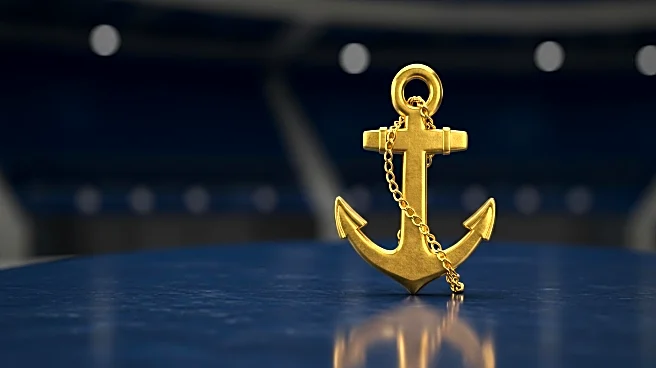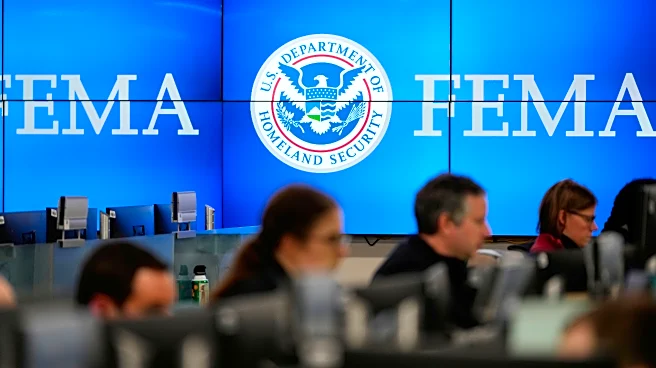What's Happening?
Lt. Gen. Michael Borgschulte has been appointed as the first Marine Corps officer to serve as superintendent of the U.S. Naval Academy, marking a historic milestone in the institution's 180-year history. Borgschulte, who graduated from the academy in 1991, previously served as deputy commandant for Manpower and Reserve Affairs in Quantico, Virginia. During the change of command ceremony, Borgschulte emphasized his commitment to preserving the academy's traditions while preparing future Navy and Marine Corps officers for the complexities of modern warfare. Secretary of the Navy John Phelan praised Borgschulte as a decorated naval aviator and veteran of three combat tours in Iraq and Afghanistan, highlighting his leadership in achieving high recruitment and retention rates in the Marine Corps. Borgschulte succeeds Vice Adm. Yvette Davids, the first woman to hold the superintendent position, who will now serve as deputy chief of naval operations at the Pentagon.
Why It's Important?
The appointment of Lt. Gen. Michael Borgschulte as superintendent of the U.S. Naval Academy signifies a significant shift in leadership dynamics, potentially influencing the training and development of future military officers. Borgschulte's background in modern military tactics and his experience in combat zones may bring a fresh perspective to the academy's approach to preparing officers for contemporary challenges. His leadership could enhance the academy's focus on warfighting capabilities, aligning with broader military objectives. The transition also underscores the evolving role of women in military leadership, as Vice Adm. Yvette Davids moves to a strategic position at the Pentagon, reflecting the increasing recognition of diverse leadership within the armed forces.
What's Next?
As Lt. Gen. Borgschulte assumes his new role, the U.S. Naval Academy may experience changes in its curriculum and training methodologies to better equip officers for modern warfare. Borgschulte's emphasis on a 'culture of winning and warfighting' suggests potential shifts in focus towards tactical and strategic military education. The academy's commissioning of Navy ensigns and Marine Corps second lieutenants will continue under his leadership, potentially influenced by his strategic vision. Meanwhile, Vice Adm. Davids' transition to the Pentagon may lead to new initiatives in naval operations and strategy, impacting broader military policies and planning.
Beyond the Headlines
The appointment of a Marine Corps officer as superintendent of the U.S. Naval Academy may reflect broader inter-service collaboration and integration within the U.S. military. Borgschulte's leadership could foster stronger ties between the Navy and Marine Corps, promoting joint operations and shared strategic goals. Additionally, the transition of Vice Adm. Davids to a high-level Pentagon role highlights the increasing presence of women in senior military positions, potentially inspiring further advancements in gender equality within the armed forces.











